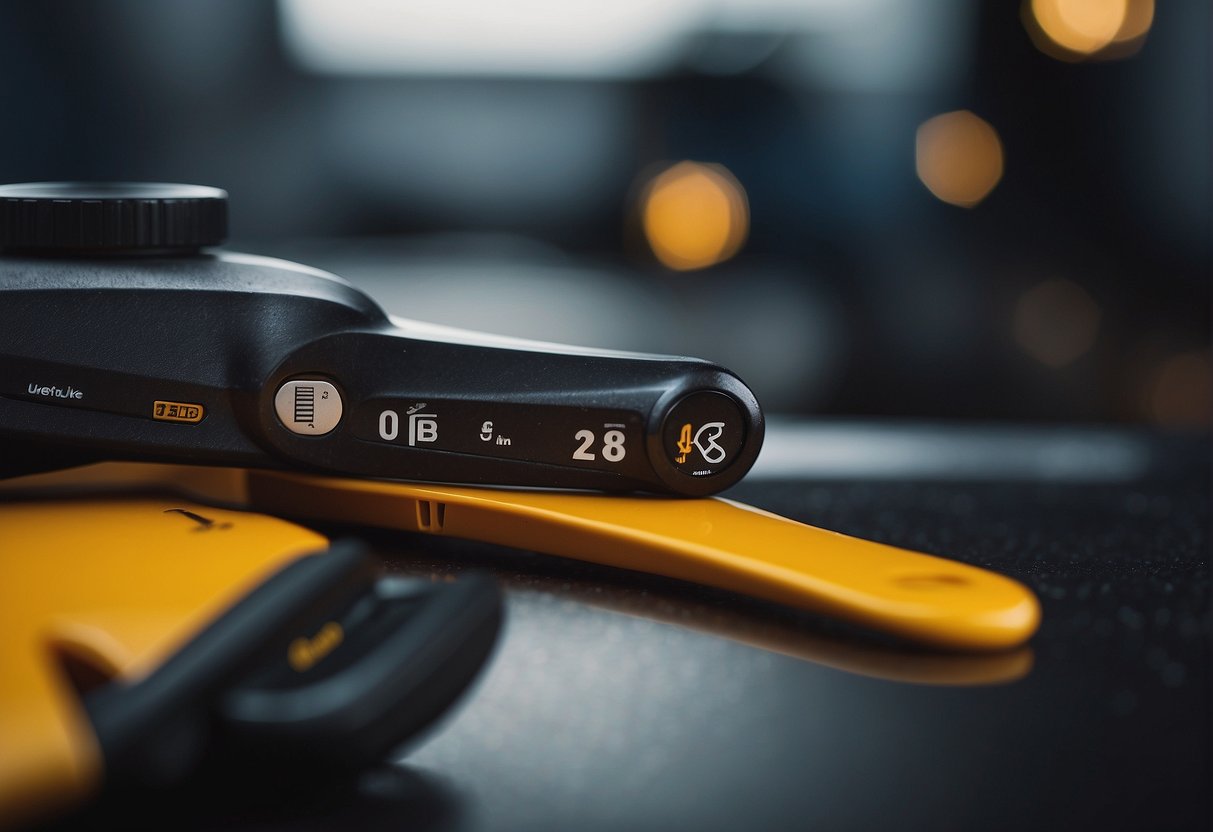When it comes to electrical testing and troubleshooting, having the right tools is crucial. Two of the most popular multimeter brands on the market are Fluke and Klein. Both brands have a reputation for producing high-quality, reliable multimeters, but which one is better? In this article, I will provide an in-depth comparison of Fluke vs. Klein multimeters, covering everything from brand history to performance specs to help you make an informed decision.
First, let’s take a closer look at each brand. Fluke is a well-established brand that has been around since the 1940s. They are known for producing high-end, professional-grade multimeters that are designed to withstand heavy use and provide accurate readings. Klein, on the other hand, is a newer brand that has been around since the mid-1800s. They are primarily known for producing hand tools, but they also offer a range of multimeters that are designed for both professionals and DIYers.
Brand Overview
As someone who has worked with both Fluke and Klein multimeters, I can attest to the quality and reliability of both brands. Here is a brief overview of each brand’s history and evolution.
History of Fluke Corporation
Fluke Corporation was founded in 1948 by John Fluke, a former physicist at General Electric. The company started out as a manufacturer of electronic measuring instruments and has since expanded into a wide range of products, including thermal imaging cameras, power quality analyzers, and more. Fluke is known for its high-quality products and has become a trusted name in the industry.
Klein Tools Evolution
Klein Tools was founded in 1857 by Mathias Klein, a German immigrant who settled in Chicago. The company originally produced handcrafted tools for blacksmiths and harness makers. Over time, Klein Tools expanded its product line to include a wide range of hand tools, including pliers, screwdrivers, and wire strippers. Today, the company is known for its high-quality tools and has a loyal following among electricians and other professionals.
Both Fluke and Klein Tools have a long history of producing high-quality products that are trusted by professionals in various industries. While Fluke is known for its test and measurement tools, Klein Tools is known for its hand tools. As such, each brand has its own loyal following and unique strengths.
Multimeter Specifications
When it comes to choosing between Fluke and Klein multimeters, one of the most important considerations is the specifications. In this section, I will discuss the accuracy, durability, design, functionality, and features of both brands.
Accuracy and Precision
Both Fluke and Klein offer high-quality digital multimeters with true RMS capabilities. These devices are designed to provide accurate and precise measurements of a wide range of electrical parameters, including voltage, current, resistance, and frequency.
Fluke multimeters are known for their exceptional accuracy and precision, with many models offering a basic accuracy of 0.5%. Klein multimeters are also accurate and precise, but they tend to have a slightly lower basic accuracy of around 1%.
Durability and Design
Fluke and Klein multimeters are both built to last, with rugged designs that can withstand tough working conditions. Fluke multimeters are known for their exceptional durability, with many models featuring reinforced cases and impact-resistant designs. Klein multimeters are also durable, with many models featuring rubberized grips and drop protection.
In terms of design, both Fluke and Klein multimeters are well-designed and easy to use. Fluke multimeters typically feature large, backlit displays that are easy to read in any lighting conditions. Klein multimeters also have backlit displays, but they tend to be slightly smaller than Fluke displays.
Functionality and Features
Both Fluke and Klein multimeters offer a wide range of functionality and features. Fluke multimeters typically offer a wider range of features, including advanced measurement capabilities, such as capacitance, temperature, and duty cycle. Many Fluke models also feature data logging capabilities, allowing users to store and analyze measurement data over time.
Klein multimeters also offer a good range of features, including auto-ranging, data hold, and low battery indicators. Many Klein models also feature clamp meters, which allow users to measure current without breaking the circuit.
Overall, both Fluke and Klein multimeters are reliable, accurate, and durable devices that are suitable for a wide range of electrical testing and troubleshooting applications. The choice between the two brands ultimately comes down to personal preference and specific needs.
Performance Comparison
When it comes to electrical testing capabilities, both Fluke and Klein offer a wide range of features. Fluke multimeters are known for their high-quality and reliable performance in industrial settings. The Fluke 117, for example, is a popular choice for electricians due to its ability to measure both AC and DC voltage, resistance, and current.
Klein multimeters, on the other hand, are designed for general use and are suitable for both professionals and DIY enthusiasts. The Klein MM400, for example, is a compact and affordable option that can measure AC/DC voltage, DC current, resistance, continuity, and diode test.
When it comes to industrial vs. general use, Fluke multimeters are designed to withstand harsh environments and heavy use. They are built with durable materials and can handle high-frequency RF measurements. Klein multimeters, on the other hand, are designed for everyday use and are more affordable than Fluke multimeters.
In terms of troubleshooting and diagnostics, Fluke multimeters are known for their advanced features and accuracy. The Fluke 289, for example, has the ability to measure temperature and perform temperature measurements. It also has a large display and can store up to 10,000 readings.
Klein multimeters, while not as advanced as Fluke multimeters, are still capable of performing basic troubleshooting and diagnostics. They are easy to use and have a compact design that makes them portable and convenient for on-the-go use.
Overall, both Fluke and Klein offer high-quality multimeters that are suitable for different purposes. Fluke multimeters are designed for industrial use and are known for their advanced features and accuracy. Klein multimeters, on the other hand, are designed for general use and are more affordable than Fluke multimeters.
Usability and Applications
Safety and Protection
When it comes to electrical testing, safety is of utmost importance. Both Fluke and Klein multimeters are designed with safety features to protect the user. The Fluke 101 has safety fuses that prevent damage to the device in case of overload. It also has a silicone rubber casing that provides insulation and protects it from falls. The Klein MM400 has a low battery indication and a safety rating of CAT III 600V, which means it can handle high-energy circuits found in industrial settings.
Ease of Use and Accessibility
Both Fluke and Klein multimeters are designed to be easy to use, even for beginners. The Fluke 101 has a simple interface with a large display that shows the readings clearly. The Klein MM400 has a backlit display that makes it easy to read in low-light conditions. It also has a compact design that makes it easy to carry around and use in tight spaces.
Specific Applications
Fluke and Klein offer different models of multimeters that are designed for specific applications. For example, the Fluke 101 is a compact and affordable multimeter that is suitable for a wide variety of electrical testing and troubleshooting applications. The Klein MM400 is designed for use by HVAC technicians and electricians, with features such as a voltalert that detects voltage without making contact with the circuit.
In summary, both Fluke and Klein multimeters are designed with safety and ease of use in mind. They offer different models that are suitable for specific applications, making it easy for users to find the right tool for their needs.
Cost and Value
When it comes to purchasing a multimeter, cost and value are important factors to consider. In this section, I will discuss the pricing models, warranty and support, and long-term value of Fluke and Klein multimeters.
Pricing Models
One of the biggest differences between Fluke and Klein multimeters is their pricing models. Fluke multimeters are generally more expensive than Klein multimeters. This is because Fluke is known for producing high-end, professional-grade multimeters that are designed for use in industrial and commercial settings. On the other hand, Klein multimeters are more budget-friendly and are designed for use by homeowners and entry-level technicians.
Warranty and Support
Warranty and support are also important factors to consider when purchasing a multimeter. Fluke offers a limited lifetime warranty on most of its products, which means that if your multimeter fails due to a manufacturing defect, Fluke will repair or replace it free of charge. Klein, on the other hand, offers a one-year warranty on its multimeters.
In terms of support, both Fluke and Klein have excellent customer service teams that are available to answer any questions you may have about your multimeter. Fluke also offers a variety of online resources, including user manuals, FAQs, and video tutorials, to help you get the most out of your multimeter.
Long-Term Value
When it comes to long-term value, both Fluke and Klein multimeters are designed to be durable and long-lasting. Fluke multimeters are known for their rugged design and are built to withstand harsh industrial environments. Klein multimeters are also designed to be durable and are built to withstand everyday use.
In terms of benefits, Fluke multimeters offer advanced features and functionality that are designed for use in professional settings. Klein multimeters, on the other hand, are more budget-friendly and are designed for use by homeowners and entry-level technicians.
Overall, when considering cost and value, it is important to think about your specific needs and use case. If you need a high-end, professional-grade multimeter, then Fluke may be the better option for you. However, if you are looking for a more budget-friendly option that is still reliable and durable, then Klein may be the better choice.
Frequently Asked Questions

What are the main differences between Fluke and Klein multimeters?
Fluke and Klein are two of the most popular brands of multimeters on the market today. While both brands are known for producing high-quality tools, there are some key differences between them. Fluke multimeters are generally considered to be more accurate and reliable than Klein multimeters, and they often come with more advanced features. However, Fluke multimeters are also more expensive than Klein multimeters, which may make them less accessible to some users.
Which is considered the best multimeter for professional use, Fluke or Klein?
Both Fluke and Klein are highly respected brands in the professional electrician community. The choice between the two comes down to personal preference, as well as the specific needs of the user. Fluke multimeters are often considered to be the gold standard for accuracy and reliability, but they are also more expensive than Klein multimeters. Klein multimeters, on the other hand, are often more affordable and may be a better choice for those on a budget.
Why are Fluke multimeters typically more expensive than other brands?
Fluke multimeters are known for their accuracy and reliability, and they are often used by professionals in a wide range of industries. The higher price point reflects the quality of the product and the extensive research and development that goes into each model. Fluke also offers a wide range of features and functions that are not available on other multimeters, which can justify the higher cost for some users.
How do the features of the Fluke 117 compare to the Klein MM700?
The Fluke 117 and the Klein MM700 are both popular models of multimeters. The Fluke 117 is known for its accuracy and reliability, and it has a number of advanced features such as True RMS voltage and current measurements. The Klein MM700 is also a reliable multimeter, but it does not offer the same level of accuracy or advanced features as the Fluke 117. However, the Klein MM700 is often more affordable than the Fluke 117, which may make it a better choice for some users.
Are Klein multimeters considered reliable for professional electricians?
Klein is a respected brand in the professional electrician community, and their multimeters are known for their reliability and durability. While they may not offer the same level of accuracy or advanced features as Fluke multimeters, they are still a popular choice among electricians and other professionals.
Is there a significant difference in manufacturing origin between Fluke and Klein multimeters?
Both Fluke and Klein multimeters are manufactured in the United States. Fluke is headquartered in Everett, Washington, and their products are manufactured in a number of locations around the world. Klein, on the other hand, is headquartered in Lincolnshire, Illinois, and their products are also manufactured in the United States. While there may be some minor differences in manufacturing processes between the two brands, both are known for producing high-quality tools that are built to last.

Hi, I’m Sal Muller of Tooltrip.com. My DIY experience led me to understand essential power tools for home projects. Tooltrip.com guides enthusiasts and professionals in choosing right tools for any job. I provide concise top tool reviews for easier, efficient DIY.

